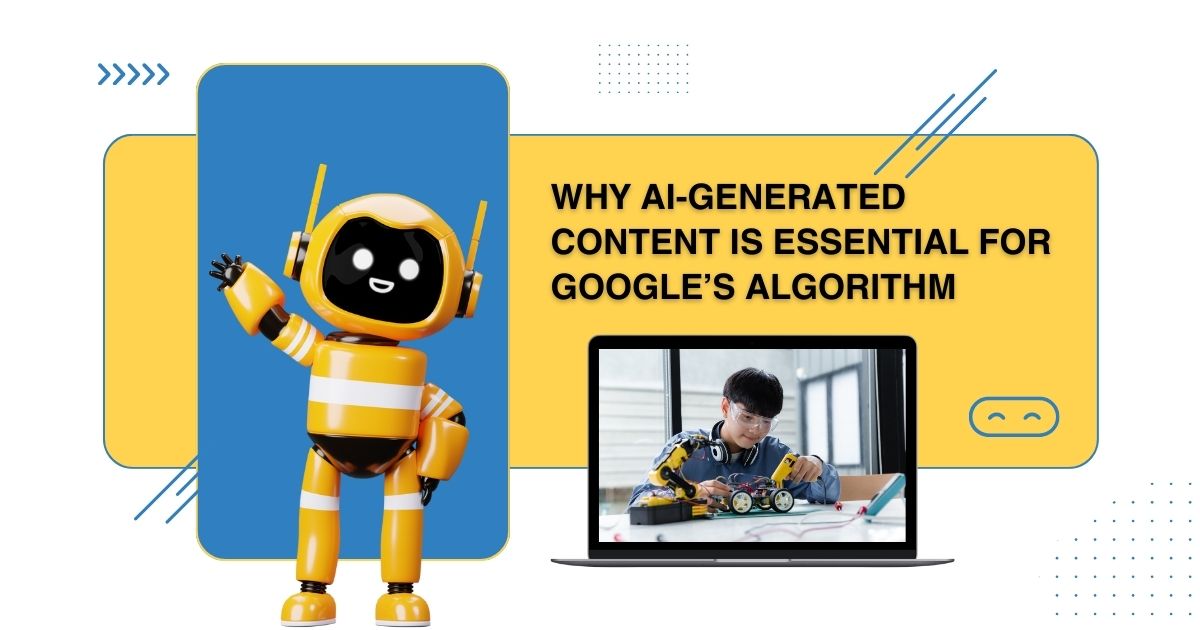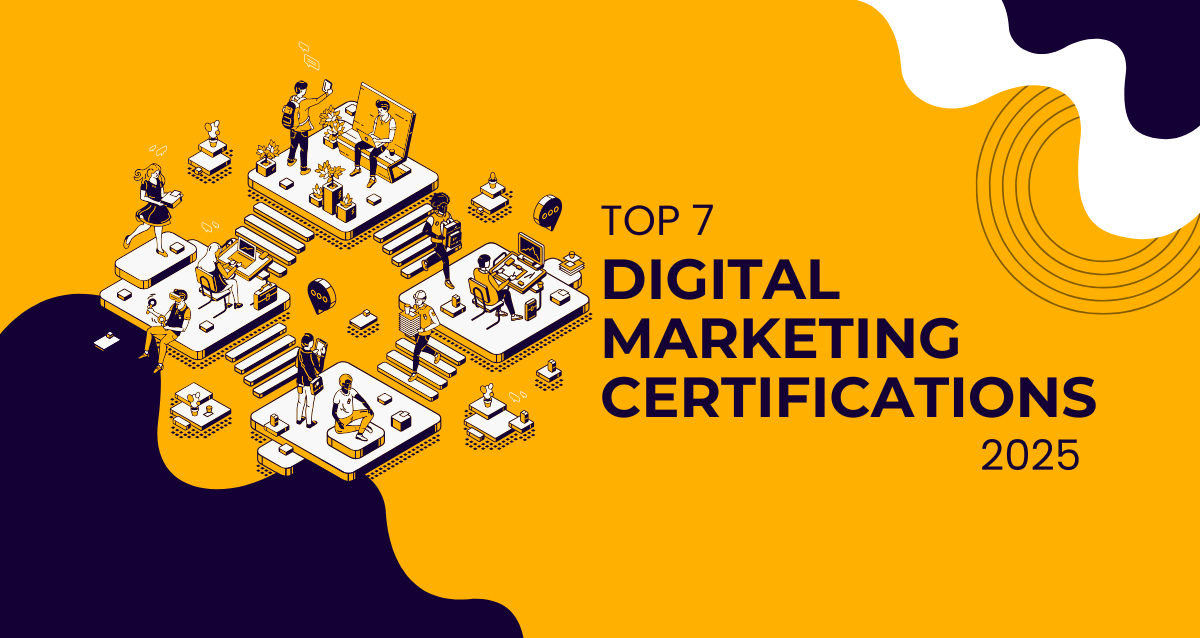
 9-Jul-2024
9-Jul-2024
To stay ahead of the competition, it is necessary for businesses to generate AI-created content. As Google’s algorithm becomes increasingly worldly, artificial intelligence (AI) in content creation has emerged as a game-changer. AI-generated content is revolutionizing not only how businesses produce and manage their online material but also aligning with Google’s evolving search algorithms. This alignment is also important for providing the most relevant, high-quality content to its users.
Apart from that, AI-driven tools are also helpful to analyze vast amounts of data to identify trending topics and optimal keywords to drive traffic to the website. Moreover, AI-generated content can maintain consistency and scalability, and it is also beneficial to produce large volumes of quality material quickly, which is essential for keeping up with the demands of frequent publication schedules. There are various other advantages to leveraging AI in content creation, such as enhanced user experience, personalization, continuous SEO optimization, and many more. Additionally, it is also helpful to drive better engagement and higher rankings.
Google’s algorithm is designed to provide users with the most relevant and high-quality content based on their search queries. It is also designed to incorporate machine learning and artificial intelligence to better understand user intent and deliver superior results. There are various key updates like Panda, Penguin, BERT (Bidirectional Encoder Representations from Transformers) and RankBrain, and more which highlight the commitment of Google to leveraging AI to enhance traffic to the website.
One of the most significant advantages of AI-generated content is that it has the ability to produce consistent and scalable outputs. AI can also generate large volumes of content quickly without compromising on quality. It is also beneficial for businesses to maintain a high frequency of content publication to stay competitive in search rankings and engage traffic to their website.
Furthermore, AI tools can analyse vast amounts of data to identify trends, keywords, and topics and help businesses reach the right audience. Moreover, the data-driven approach ensures that the content that is created is highly relevant and optimised for search engines. If you can incorporate these insights, AI-generated content can better align with what users are searching for. It is also beneficial to improve the chances of ranking higher on Google.
One of the most significant advantages of AI-generated content is that it has the ability to produce consistent and scalable outputs. AI can also generate large volumes of content quickly without compromising on quality. It is also beneficial for businesses to maintain a high frequency of content publication to stay competitive in search rankings and engage traffic to their website.
Google’s algorithm places a strong emphasis on the user experience. There are various factors, such as page load speed, mobile friendliness, and content relevance, that are critical in determining search rankings. AI-generated content can be optimised to meet these criteria and also ensure a seamless and engaging experience for users.
Here, I would like to provide you with one example to clarify things. AI can create high-quality, structured content that is easy to read and navigate. In other words, it helps to reduce bounce rates and increase user engagement.
Interestingly, AI tools can optimise content for SEO by ensuring proper keyword placement, meta descriptions, alt text for images, and other on-page SEO elements. Moreover, AI can perform A/B testing on various content pieces to determine which versions perform best in terms of user engagement and search rankings. This continuous optimisation helps to maintain a strong SEO strategy that aligns with Google’s evolving algorithm.
In this digital era, personalisation is becoming increasingly important in digital marketing. AI can analyse user behaviour and preferences to create personalised content that caters to individual needs. It is also a great option for businesses to enhance user satisfaction and loyalty, which are critical factors for improving search rankings.
Google frequently updates its algorithm to get tangible search results. Apart from that, the AI tools are also designed to adapt quickly to new algorithm updates. By using AI-generated content, businesses can ensure that their content strategies remain aligned with the latest SEO best practices and algorithm requirements.
AI-generated content has advanced to a point where it can produce high-quality, original content that is indistinguishable from human-written text. This quality and originality are essential to staying competitive. AI tools can also help detect and avoid plagiarism and ensure that all content is unique and valuable.
Creating high-quality content can be time-consuming and expensive. However, AI-generated content offers a cost-effective solution by automating the content creation process. This efficiency also allows businesses to allocate resources to other critical areas of their marketing strategy.
Google’s algorithms are complex mechanisms that are used to retrieve information from its search index. Google keeps the details of its search ranking algorithm, but it uses various specific strategies to rank content and get accurate results.

Google uses automated programmes called web crawlers or spiders (e.g., Googlebot) to explore the web.
During indexing, Google examines various aspects of the page, which include text, images, videos, and metadata, to understand what the page is about. The indexing process also considers numerous factors, such as content quality, page structure, and the use of keywords.
Google’s algorithm evaluates the indexed pages and determines the most relevant results to display. There are various factors that are included in the ranking, such as
Google displays search results on the Search Engine Results Page (SERP). These results include a mix of organic listings, paid ads, featured snippets, and other rich results like images, videos, and local listings.
Overall, AI-generated content is becoming an indispensable tool for businesses that are looking to improve their Google search rankings. Businesses can create high-quality, relevant, and optimized content that meets Google’s algorithm standards. As AI technology continues to rise, its role in content creation and SEO will also become more significant, making it essential for businesses to embrace AI-driven strategies to stay competitive in the digital landscape.


19-Sep-2025


9-Sep-2025


14-Aug-2025